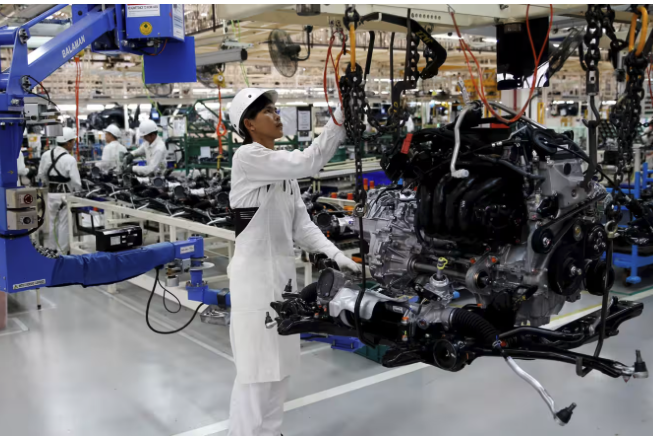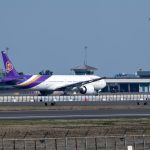Thai manufacturers are set to attend an urgent meeting convened by the Federation of Thai Industries (FTI) today to explore strategies to address the US’s reciprocal tariffs of 37% on Thai exports. A proposal is anticipated to encourage increased purchases of American products to mitigate the trade imbalance.
The White House introduced the new tariff policy, citing “a persistent trade deficit driven by the lack of reciprocity in our trade relationships.”
Thailand is significantly impacted by these steep tariffs, which are scheduled to take effect on April 9.
“The 37% tariff exceeds the FTI’s initial estimate of 10-15%,” stated Kriengkrai Thiennukul, chairman of the FTI.
Discussions among exporters to the US are essential since the new tariffs may have widespread implications for various industries and international trade, according to Mr. Kriengkrai. Additionally, foreign vehicles shipped to the US are subject to a 25% tariff, which was implemented recently.
The Thai automotive sector is already facing challenges with declining vehicle exports and domestic sales. Vehicle exports dropped by 18.1% year-on-year during the first two months of this year, totaling 143,644 units, while domestic sales decreased by 9.53%, amounting to 97,395 vehicles within the same timeframe, as reported by the FTI’s Automotive Industry Club.
High household debt levels are significantly influencing domestic sales, while the decline in car exports can be attributed to several factors, including Washington’s trade policies. This situation caused Thailand’s trading partners to reduce purchases of mostly internal combustion engine-powered vehicles, as they awaited clarity on the tariff policies from President Donald Trump, noted the FTI’s Automotive Industry Club.
There is a call for government intervention to support the automotive industry and other sectors impacted by the new US tariffs, advocated by Suwat Supakandechakul, president of the Thai Automotive Industry Association.
The imposition of a 37% tariff on Thai products was somewhat anticipated, given that Thailand’s trade surplus with the US was the 11th largest globally in 2024, exceeding US$35 billion (or 1.2 trillion baht), remarked Mr. Suwat.
One of the factors contributing to this trade surplus is the presence of US companies producing electronics, particularly hard disk drives, which they export back to their own country, as indicated by Mr. Kriengkrai.
An executive at PTT Group, who asked to remain anonymous, suggested that Thailand may need to reduce imports from certain countries to increase purchases of US goods in order to address the trade surplus. “We need to manage our demand for overseas products by prioritizing those made in the US,” the source explained.
Thailand typically imports liquefied natural gas from the Middle East, but it may consider sourcing more LNG from the US. This strategy could also extend to increasing purchases of US-manufactured aircraft, according to the executive.




